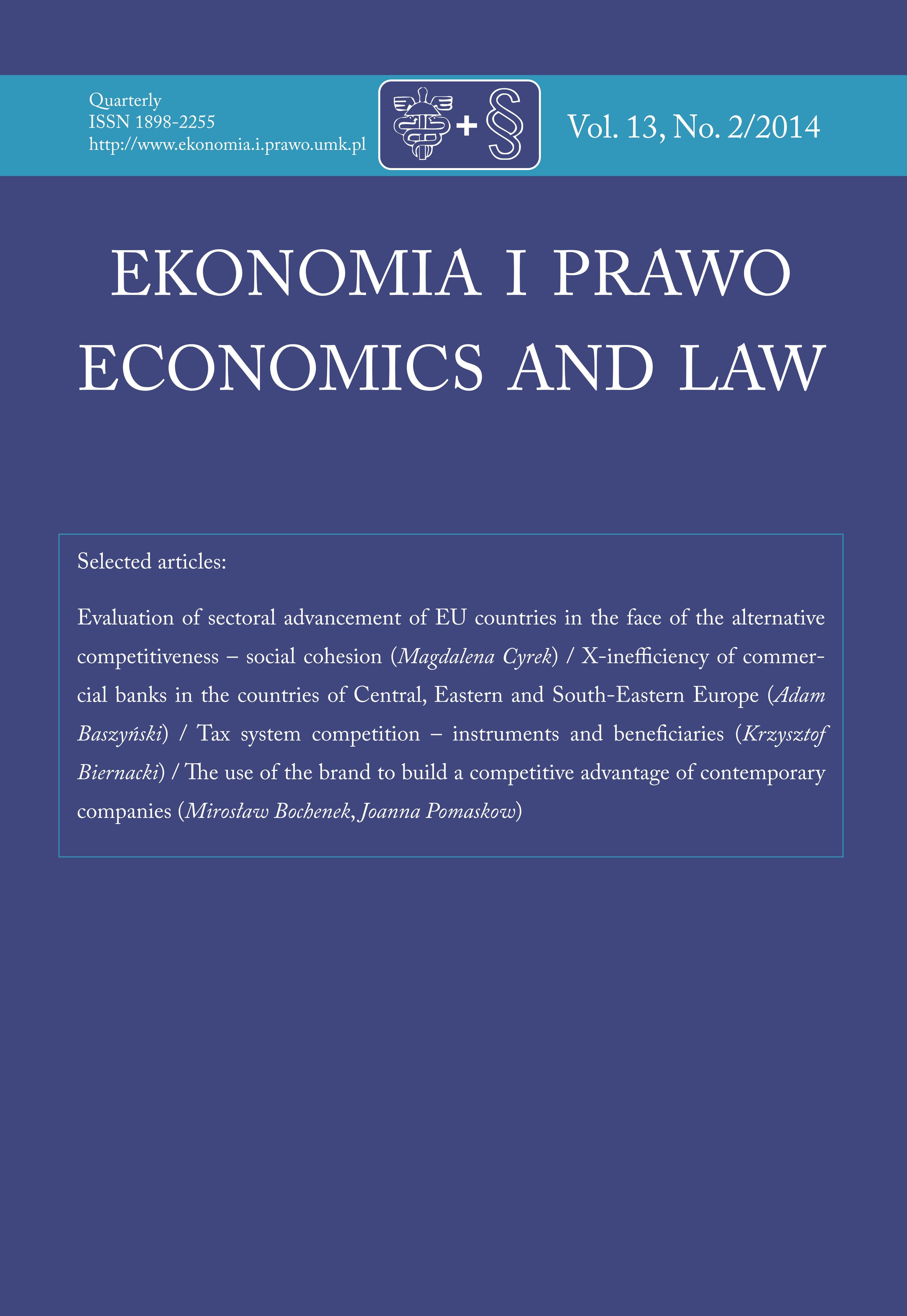TAX SYSTEM COMPETITION – INSTRUMENTS AND BENEFICIARIES
DOI:
https://doi.org/10.12775/EiP.2014.020Keywords
tax competition, tax system, fiscal harmonizationAbstract
Tax competition among states and jurisdictions has already been examined many times in the economic literature. However, the main scope of the research was focused on a tax rates competition in income taxes and its consequences in bringing direct investments. This scripture/commentary tries to analyze various instruments and beneficiaries of the tax system competition and provide a general overview on this subject.
References
Biswas R., The Commonwealth Response to the OECD Initiative on Harmful Tax Com-petition, [in:] Biswas R. (ed.), International Tax Competition. Globalisation and Fiscal Sovereignty, Commonwealth Secretariat, London 2002.
Brown T.H., How money walks, Pelopidas LLC, Washington 2013.
Ernst&Young, Specjalne Strefy Ekonomiczne po roku 2020. Analiza dotychczasowej działalności oraz perspektywy funkcjonowania, 2011.
European Commission, Towards tax co-ordination in the European Union: a package to tackle harmful tax competition, Communication from the European Commission, COM(97) 495 final, 1997.
Feld L.P., HeckemeyerJ.H., FDI and Taxation: A Meta-Study, „Journal of Economic Surveys”, Vol. 25, No. 2/2011, http://dx.doi.org/10.1111/j.1467-6419.2010.00674.x.
Feld L.P., Zimmerman H., Doering T., Fiscal Federalism, Decentralization and Eco-nomic Growth, „Public Economics and Public Choice”, Vol. 2007, http://dx.doi.org/10.1007/978-3-540-72782-8_6.
Financial Times, Hollande orders employers to pay 75% tax, 29th March 2013.
Gerken L., Maerkt J., Schick G., Double Income Taxation as a response to Tax Compe-tition in the EU, „Intereconomics”, Vol. 36, No. 5/2001, http://dx.doi.org/10.1007/bf02928978.
Haufler A., Staehler, F., Tax Competition In A Simple Model With Heterogeneous Firms: How Larger Markets Reduce Profit Taxes, „International Economic Re-view”, Vol. 54, No. 2/2013, http://dx.doi.org/10.1111/iere.12010.
Haupt A., Peters W., Restricting preferential tax regimes to avoid harmful tax competi-tion, „Regional Science and Urban Economics”, Vol. 35, No. 5/2005, http://dx.doi.org/10.1016/j.regsciurbeco.2004.07.002.
Lockwood B., Competition in unit vs. ad valorem taxes, „International Tax and Public Finance”, Vol. 11, No. 6/2004, http://dx.doi.org/10.1023/b:itax.0000045330.53417.1f.
OECD, Harmful Tax Competition: An Emerging Global Issue, 1998.
Sokol N., Corporate Tax Systems and Tax Competitition in the EU New Member States, „Zagreb International Review of Economics & Business”, Vol. 11, No. 2/2008.
Tax Justice Network-Africa &ActionAid International, Tax competition in East Africa: A race to the bottom?, April 2012.
Trandafir A., Ristea L., Fiscal Equalization in Corporate Taxation – A Way of Limiting the Harmful Tax Competition in the EU, „Education and Managenent”, Vol. 210/2011, http://dx.doi.org/10.1007/978-3-642-23065-3_62.
Wnorowski H., Wpływ podatków na wzrost gospodarczy i konkurencyjność w ujęciu instytucjonalnym, „Gospodarka Narodowa”, Nr 4/2010.
Downloads
Published
How to Cite
Issue
Section
Stats
Number of views and downloads: 310
Number of citations: 0
